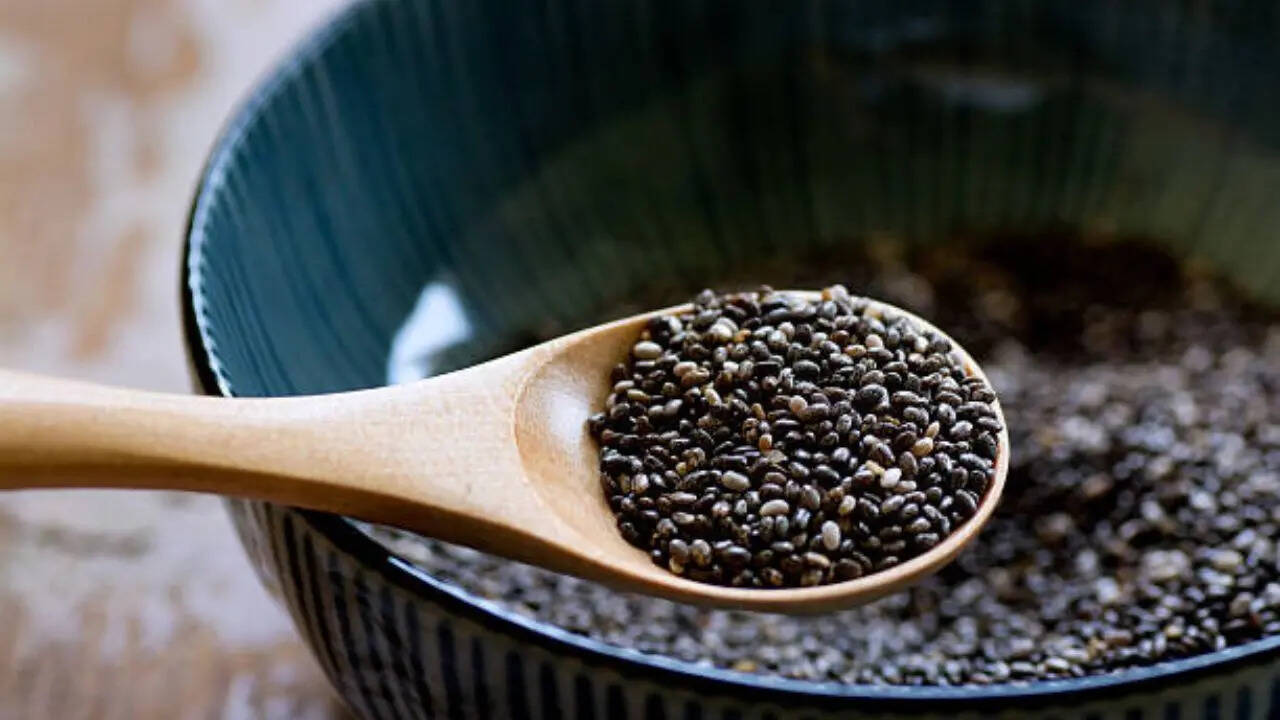Health
Chia Seeds: Potential Drug Interactions You Should Know

Chia seeds have gained popularity for their nutritional benefits, but they can interfere with certain medications. While these seeds are beneficial for heart health, bone strength, and blood sugar control, their interaction with various drugs may pose risks. It is essential for individuals taking medications to be aware of these potential interactions.
Understanding the Risks with Blood Pressure Medications
Chia seeds are known to help lower blood pressure by promoting mineral balance and enhancing heart function. Their action mirrors that of angiotensin-converting enzyme (ACE) inhibitors, a class of medications used to treat hypertension. ACE inhibitors work by preventing the conversion of angiotensin I to angiotensin II, a peptide that can raise blood pressure.
Experts have noted that a protein component in chia seeds can also block the activity of ACE. Consequently, individuals taking blood pressure medications alongside chia seeds may find their prescribed treatments less effective. It is advisable for patients to consult healthcare providers for guidance on incorporating chia seeds into their diets.
Chia Seeds and Diabetes Management
For those managing diabetes, chia seeds can assist in regulating blood sugar levels. However, consuming chia seeds in conjunction with diabetes medications can lead to a further decrease in blood sugar, resulting in hypoglycemia. Symptoms of low blood sugar include fatigue, lightheadedness, dizziness, and faintness.
Patients should monitor their blood sugar levels closely and discuss any dietary changes, including the addition of chia seeds, with their healthcare provider to avoid potential health risks.
Considerations for Cholesterol Medications
Chia seeds have proven beneficial in reducing blood lipids and cholesterol levels, contributing to overall heart health. Nevertheless, excessive consumption of chia seeds while on cholesterol-lowering medications can be detrimental. It is crucial for patients to consult their doctors before combining chia seeds with these medications to ensure safe usage.
The Impact of Mineral Supplements
Packed with essential macro- and micronutrients, chia seeds offer significant health benefits. However, for individuals taking mineral supplements, the intake of chia seeds may lead to excessive levels of minerals such as calcium, magnesium, phosphorus, and potassium. This can result in symptoms like fatigue, muscle aches, and cramps.
Healthcare providers recommend checking blood mineral levels if one is consuming large quantities of chia seeds alongside supplements to avoid potential complications.
Interactions with Laxatives
Chia seeds can aid in alleviating constipation, making them a natural choice for digestive health. However, combining chia seeds with laxatives can have an additive effect, leading to loose stools or diarrhea. Other digestive issues, such as bloating and stomach pain, may also arise.
Individuals using laxatives should be cautious when incorporating chia seeds into their diets and consult a healthcare professional for tailored advice.
In summary, while chia seeds offer numerous health benefits, awareness of their interactions with certain medications is crucial. Always seek guidance from a healthcare provider to ensure safe usage, particularly if you are taking blood pressure or diabetes medications, cholesterol drugs, mineral supplements, or laxatives.
-

 World5 months ago
World5 months agoSBI Announces QIP Floor Price at ₹811.05 Per Share
-

 Lifestyle5 months ago
Lifestyle5 months agoCept Unveils ₹3.1 Crore Urban Mobility Plan for Sustainable Growth
-

 Science4 months ago
Science4 months agoNew Blood Group Discovered in South Indian Woman at Rotary Centre
-

 World5 months ago
World5 months agoTorrential Rains Cause Flash Flooding in New York and New Jersey
-

 Top Stories5 months ago
Top Stories5 months agoKonkani Cultural Organisation to Host Pearl Jubilee in Abu Dhabi
-

 Sports4 months ago
Sports4 months agoBroad Advocates for Bowling Change Ahead of Final Test Against India
-

 Science5 months ago
Science5 months agoNothing Headphone 1 Review: A Bold Contender in Audio Design
-

 Top Stories5 months ago
Top Stories5 months agoAir India Crash Investigation Highlights Boeing Fuel Switch Concerns
-

 Business5 months ago
Business5 months agoIndian Stock Market Rebounds: Sensex and Nifty Rise After Four-Day Decline
-

 Sports4 months ago
Sports4 months agoCristian Totti Retires at 19: Pressure of Fame Takes Toll
-

 Politics5 months ago
Politics5 months agoAbandoned Doberman Finds New Home After Journey to Prague
-

 Top Stories5 months ago
Top Stories5 months agoPatna Bank Manager Abhishek Varun Found Dead in Well









